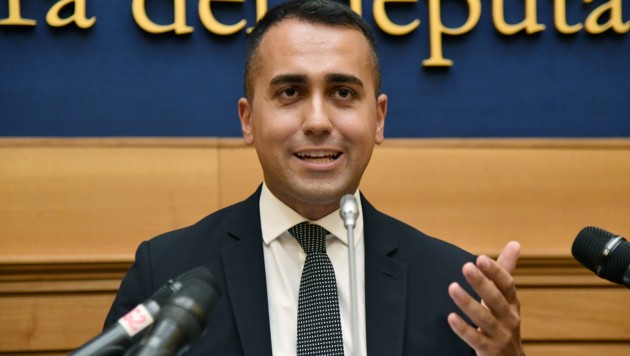Democracy is in danger as in a long time. Populists and demagogues such as US President Donald Trump, Brazil’s President Jair Bolsonaro and British Prime Minister Boris Johnson are at the controls of power, the serious political discourse no longer takes place. Why is that? And how can you change that?

For the opinion-making in the election campaign, the TV discussions have become indispensable. For the candidates for staging, for the medium for the quota. Rarely is topic security important, the main thing is a riot.
Staging takes precedence over content
According to the internet platform imdb.com, there are no party leaders in the Top 5 of the guest list of the ORF political talk show “Im Zentrum” since its first broadcast in 2007 with Harald Vilimsky (14) and Josef Cap (10) but two grandmasters of the production ( Note: The ORF does not confirm this list ). Content incidentally, dispute obviously. Which becomes more and more with discussions under party leaders in the Nationalrat election campaign. Staging takes precedence over content. Was it always like that? Yes.
Confidence in politics is dwindling
But: “The taboo is increasingly calculated,” says Christoph Hofinger from opinion research institute SORA. An effective, provocative punch brings more than valid arguments. So fun politicians like Trump win elections.
Italy’s foreign minister can not even speak English
Yours truly serious in serious times is dangerous. The “old” policy has failed to demonstrate its ability to take action against new challenges – growing inequality, immigration, climate change. “If confidence in the established power fades, then comes the time of the jester, who suddenly becomes the ruler,” Hofinger analyzes. Trump, Johnson, Bolsonaro or in Italy, the satire party Five Stars, which is now with Luigi Di Maio, a foreign minister who can not even speak English, then the result.

When populists say who “the people” is
Lack of trust drives voters into the clutches of populists, in their greed for attention similar masters of staging as the jester. Jovial. Close to the people. One who speaks their language but acts in self-interest. “Staging is part of democracy and does not endanger it,” says Hofinger. In the sense of a friend-enemy scheme, questioning the judiciary or calls in editorial offices, either to prevent critical stories or to give them the desired spin, however, already. “Criticism must endure it, it must not develop a totalitarian claim,” said Hofinger.
Who is against them, is a traitor
As the jester as a rule in the technical discourse, the arguments, he resorts to the simplest means of politics: the populist propaganda: “The propaganda of the populists is based on a lie, the lie of the unified will of the people”, Stefan Ulrich recently wrote in the Süddeutsche Zeitung. Populists claim to represent the true popular will, and like to call it “the silent majority in the country”. Whoever is against them is a traitor. “Whereby most of the population can make out”, as Ulrich logically argues. In the 2017 parliamentary elections, 68 percent of Austrians did not vote for the ÖVP, just under 73 percent did not vote for the SPÖ and about 75 percent did not vote for the FPÖ.
What characterizes parliamentary democracy is the finding of compromise through people-elected representatives from all directions. “This is alien to the populist,” concludes Ulrich soberly.
How do you get the trust back?
In South, America dictatorships were still the norm until 50 years ago. Not any longer. But traditional democracy is in the crisis of meaning and has weaknesses. She has to evolve. “In Ireland or Vorarlberg, there are already attempts with citizens’ councils as advisory bodies. That could recapture lost trust, “says expert Hofinger. Not to leave the world to the jesters.

